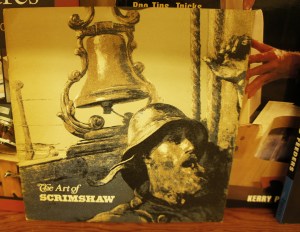PLEA AGREEMENT
The United States of America and W ALTER SCHOEPF (hereinaûer referred to as the defendant) enter into the following agreement:
The defendant agrees to plead guilty to the lesser included offense contained in Count 2 of the Indictment, which cotmt charges the defendant with Lacey Act-
False Labeling, in violation of Title 16, United States Code, Sections 3372(d)(2) and 3373(d)(3)(B).
2. The United States will seek dismissal of Counts 1 and 3 the lndictment, as to this defendant, at sentencing.
3. The defendant is aware that the sentence will be imposed by the court after considedng the Federal Sentencing Guidelines and Policy Statements (hereinafter
sentencing Guidelines). Defendant acknowledges and understands that the court will compute an advisory sentence under the Sentencing Guidelines and that
the applicable guidelines will be dètermined by the court relying in part on the results of a Pre-sentence Investigation by the court’s probation office, which
investigation will commence after the gtlilty plea has been entered. Defendant is also aware that, under certain circumstances, the court may depart from the
advisory sentencing guideline range that it has computed, and m ay raise or lower that advisory sentence under the Sentencing Guidelines. Defendant is further
aware and understands that the court is required to consider the advisory guideline range detennined under the Sentencing Guidelines, but is not bound to
impose that sentence; the court is permitted to tailor the ultimate sentence in light of other statm ory concerns, and such sentence maybe eithermore severe or
less severe than the Sentencing Guidelines’ advisory sentence. Knowing these facts, defendant understands and acknowledges that the court has the authority to
impose any sentence within and up to the statutory maximum authorized by law for the offenses identified in paragraph 1 and that defendant may not withdraw
his plea solely as a result of the sentence imposed.
4. Defendant also understands and acknowledges that the court may impose a statutory maximum term of imprisonment of up to one (1) year, followed by a term
of supervised release of up to one (1) year on Cotmt 2. ln addition to a term of imprisonment and supezvised release, the court mayimpose a fine of up to $10,000,
or based onthe pecuniary loss or gain, twice the gross gain or twice the poss loss, pttrsuant to Title 18, United States Code, Section 3571(d), and may order
restitution pursuant to Title 18 U.S.C. j 3663A.
5. Defendant further understands and acknowledges that, in addition to any sentence imposed in paragraph three (3) of this agreement a special assessment in
the amount of $25, per count of conviction, will be imposed on defendant for a total of $25.00. Defendant agrees that the special assessment imposed shall be
paid at the time of sentencing.
6. The Office of the United States Attorney for the Southem Distlict of Florida (hereinafter the office) reserves the right to inform the court and the probation
office of all facts pertinent to the sentencing process, including al1 relevant information concerning the offenses committed, whether charged or not, as well as
conceming the defendant’s background. Subject only to the express terms of any agreed-upon sentencing recommendations contained in this agreement, this
Office further reserves the right to make any recommendation as to the quality and quantity of punishment.
7. The United States further agrees to recommend that defendant be sentenced at the low end of the guideline range, as that range is detennined by the court. The
United States, however, will not be required to make this motion and this recommendation if the defendant: (1) fails or refuses to make a 111, accurate and
complete disclosure to the probation office of the circumstances surrounding the relevant offense conduct; (2) is found to have misrepresented facts to the
government prior to entering into this plea agreement; or (3) commits any misconduct after entering into this plea agreement, including but not limited to
committing a state or federal offense, violating any term of release, or making false statements or m isrepresentations to any governmental entity or official.
8. Defendant agrees that he shall cooperate fully with this Office by:
(a) providing truthful and complete information and testimony, and producing documents, records and other evidence, when called upon by this Office, whether
in interviews, before a grand jury, or at any trial or other court proceeding;
(b) appearing at such grandjuryproceedings, hearings, trials, and otherjudicial proceedings, and at meetings, as may be required by this Office; and
(c) if requested by this Office, worldng in an undercover role to identify, contact, and negotiate with unindicted co-conspirators, known and unknown to the
United States Attorney, who are suspected and believed to be involved in criminal misconduct under the supervision of and in compliance with, 1aw enforcement
officers and agents.
9. This Office reserves the right to evaluate the nature and extent of the defendant’s cooperation and to make defendant’s cooperation, or lack thereof, known to
the court at the time of sentencing. lf in the sole and unreviewable judgment of this Office defendant’s cooperation is of such quality and significance to the
investigation or prosecution of other criminal matters as to warrant the court’s downward departure from the advisory sentence calculated under the Sentencing
Guidelines, this Office may at or before sentencing make a motion consistent with the intent of Section 5K1. 1 of the Sentencing Guidelines prior to sentencing, or
Rule 35 of the Federal Rules of Criminal Procedure subsequent to sentencing, reflecting that defendant has provided substantial assistance and recomm ending
that defendant’s sentence be reduced from the advisory sentence suggestedbythe SentencingGuidelines. Defendant acknowledges and agrees,however,
and nothing in this Agreement may be construed to require this Office to file any such motions) and that this Office’s assessment ofthe nature, value, truthfulness,
completeness, andaccuracyof his cooperation shall be binding insofar as the appropriateness of this Office’s sling of any such motion is concerned.
10. Defendant is aware that Title 18, United States Code, Section 3742 normally affords the defendant the right to appeal the sentence imposed in this case.
Acknowledging this, in exchange for the undertakings made by the United States in this plea agreement, defendant hereby waives all rights conferred by Section
3742 to appeal any sentence imposed, including any restitution order, or to appeal the manner in which the sentence was imposed, unless the sentence exceeds
the maximum permitted by statute or is the result of an upward departure and/or a variance from the guideline range that the court establishes at sentencing.
Defendant further understands that nothing in this agreement shall affect the government’s tight and/or duty to appeal as set forth in Title 18, United States
Code, Section 3742(b). However, if the United States appeals the defendant’s sentence pursuant to Section 3742(b), defendant shall be released from the above
waiver of appellate rights. By signing this agreement, defendant acknowledges he has discussed the appeal waiver set forth in this agreement with his attorney.
Defendant further agrees, together with the United States, to request that the district court enter a specific finding that the defendant’s waiver of his right to
appeal the sentence to be imposed in this case was knowing and voluntary. Defendant is aware that the sentence has not yet been detennined by the court.
Defendant also is aware that any estim ate of the probable sentencing range or sentence that defendant may receive, whether that estimate comes from the
defendant’s attorney, the govemment, or the probation office, is a prediction, not a promise, and is not binding on the government, the probation office, or the
court. Defendant lmderstands further that any recommendation that the government makes to the court as to sentencing, whether pursuant to this agreement or
otherwise, is not binding on the court and the court may disregard the recommendation in its entirety. Defendant understands and acknowledges, as previously
acknowledged in paragraph 3 above, that the defendant may not withdraw his plea based upon the court’s decision not to accept a sentencing recommendation
made by the defendant, the government, or a recommendation made jointly by both the defendant and the government.
12. This is the entire agreement and tmderstanding between the United States and the defendant. There are no other av eem ents, promises, representations, or
understandings.
Respectfully submitted,
WIFREDO A . FERRER
UNITED STATES ATTORNEY





You must be logged in to post a comment.